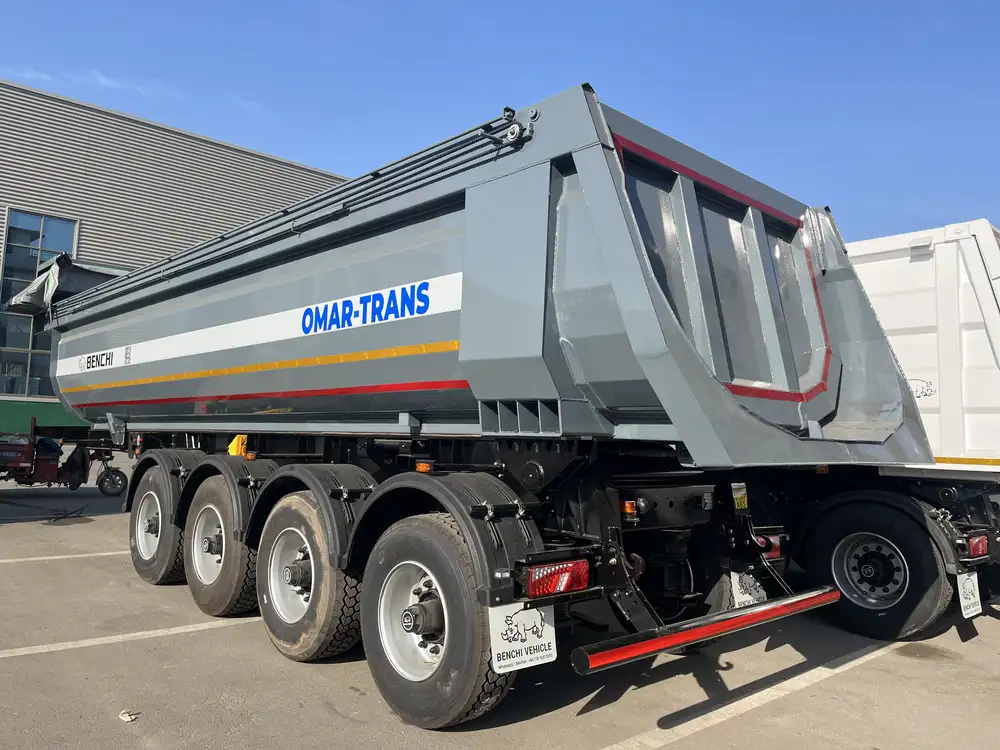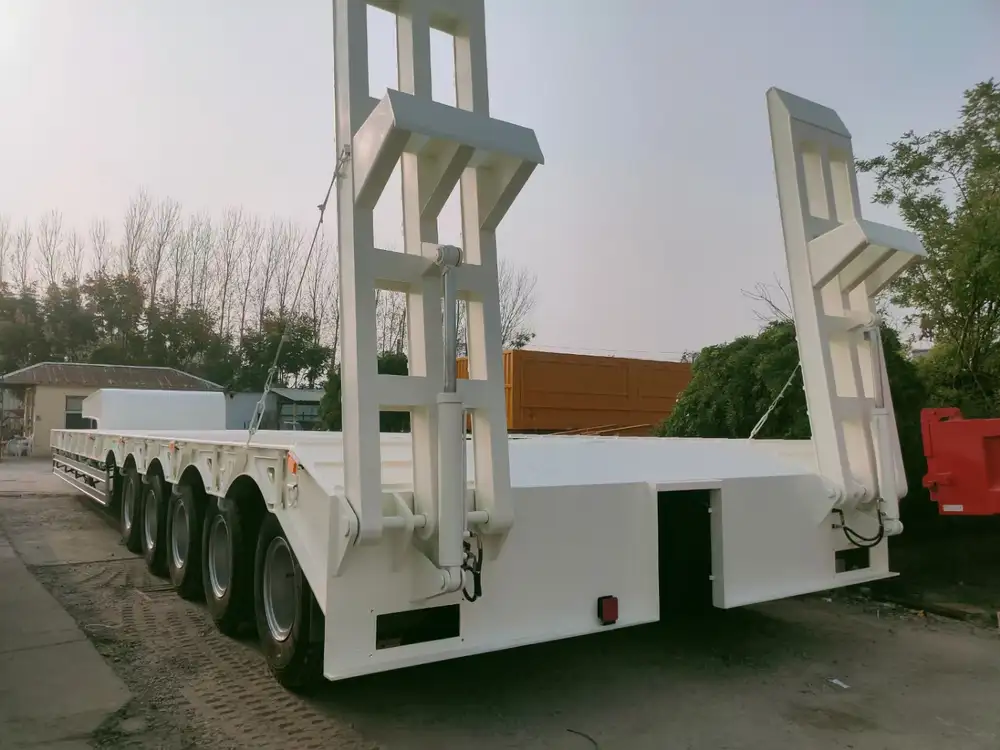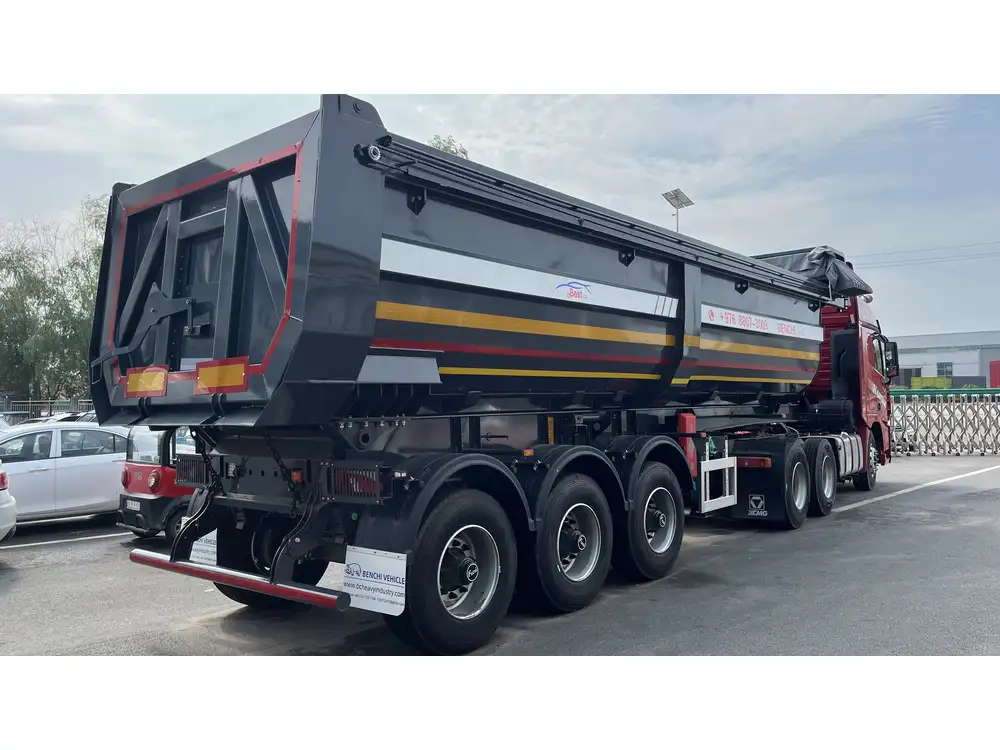In today’s evolving landscape of construction and landscaping, the utility of dump trailers cannot be overstated. They’re essential for transporting loose materials like sand, gravel, and debris, making them indispensable for contractors and DIY enthusiasts alike. Understanding the pricing structure of dump trailers is crucial for anyone considering adding one to their fleet. In this guide, we explore the factors influencing dump trailer costs, the features that impact pricing, and tips for selecting the right model to suit your needs.
Understanding Dump Trailer Pricing
The cost of a dump trailer can vary greatly, depending on several key factors:
| Factors Influencing Dump Trailer Costs | Description |
|---|---|
| Size and Capacity | Generally, larger trailers with higher capacity cost more. Common sizes range from 5 to 20 cubic yards. |
| Material Used | Trailers made from high-quality steel or aluminum are more expensive but offer better longevity. |
| Brand Reputation | Established brands may come at a premium due to reliability, warranty, and resale value. |
| Features | Additional features like hydraulic lifts, reinforced frames, and integrated safety systems will increase costs. |
| Customization Options | Custom colors, added utility features, or specialized attachments can significantly affect the price. |
| Market Trends | Seasonal demand can cause fluctuations; prices may rise during peak construction seasons. |
| Location | Regional supply and demand can create price variance across different areas. |
Price Range Overview
Here is a breakdown of what you might expect to pay at various price points for different dump trailer types:
Entry-Level Dump Trailers: $3,000 – $6,000
Typically smaller, lightweight models suitable for casual use or small landscaping jobs.Mid-Range Dump Trailers: $6,000 – $12,000
These are more robust, featuring improved construction materials and hydraulic systems, ideal for small contractors.Heavy-Duty Dump Trailers: $12,000 – $20,000+
Designed for heavy construction jobs, these trailers are built to withstand heavy loads and harsh conditions.

Key Features of Dump Trailers
When purchasing a dump trailer, several features can directly impact the price and utility of the trailer. Understanding these features can guide your buying decision:
1. Capacity and Size
The capacity of a dump trailer is measured in cubic yards. You should assess your expected load requirements to determine the best size. For example, a 5-cubic-yard trailer may suffice for residential landscaping, while a larger, 14-cubic-yard model could be necessary for commercial construction projects.
2. Construction Material
Steel Dump Trailers: Durable and robust, steel trailers often come with a higher price tag. However, they are well-suited for carrying heavy loads and are less likely to bend or deform.
Aluminum Dump Trailers: While lighter and resistant to rust, aluminum models tend to have lower weight capacities. However, they may be more cost-effective in regions prone to corrosion.

3. Hydraulic Systems
The quality and type of hydraulic system can significantly affect the price. Dual-acting cylinders typically offer better lifting power, allowing for faster and more efficient unloading. While more expensive, these systems can ultimately save time on the job site.
4. Axle Configuration
The number of axles impacts the trailer’s load capacity and stability. Single-axle trailers are cheaper but have lower weight limits, typically ranging from 2,000 to 7,000 pounds. Tandem-axle trailers offer greater weight capacity and better balance, suitable for those planning to haul heavier loads.
5. Safety Features
Investing in safety features like integrated brake systems, LED lights, and reflective markings adds to the overall cost but enhances operational safety and compliance with regulations.

6. Tarp Systems
If you plan on hauling loose materials, a tarp system may be a worthwhile investment. While it adds to the initial cost, it helps contain debris and complies with state laws on load coverage.
Hidden Costs and Considerations
While purchasing a dump trailer, buyers should be mindful of concealed costs that can affect the total expenditure:
| Additional Costs | Details |
|---|---|
| Taxes and Fees | Sales tax based on your location can add significantly to the purchase price. |
| Delivery Charges | If you require the trailer to be delivered, this can add a few hundred dollars. |
| Insurance | Comprehensive liability insurance is important and should be factored into the long-term costs. |
| Maintenance Costs | Regular maintenance and repairs will incur ongoing costs, so consider the lifespan of components like brakes and tires. |
| Permits and Licensing | Depending on your location, you may need permits or licenses to operate a dump trailer legally, particularly for commercial use. |
Dump Trailer Financing Options
Securing financing for your dump trailer can ease the financial burden. Various options to explore include:
Manufacturer Financing Programs: Some manufacturers offer in-house financing plans, making the payment process streamlined for buyers.
Bank Loans or Credit Unions: Traditional lending institutions often provide competitive rates for larger purchases.
Lease-to-Own Options: Leasing gives you the ability to use a dump trailer while making regular payments. At the end of the term, you generally have the option to buy it.
Installment Plans from Dealers: Many dealers offer installment payment plans that spread out the cost over months or years, allowing you to budget easily.

Selecting the Right Dump Trailer
Choosing the appropriate dump trailer hinges on your specific needs, including material capacity, construction type, and intended use. Here’s a guide to help streamline your decision-making process:
Assess Your Needs
Type of Material: What will you mostly carry? Lightweight materials like mulch versus heavy debris like soil should guide your trailer selection.
Frequency of Use: If you’re an occasional user, an entry-level model may suffice. However, if you’re in business, investing in a higher-capacity model pays off in the long run.
Compare Options
Leverage online tools and local dealerships to compare different models and ask probing questions about warranties, service agreements, and customer reviews.

Warranty and Support
Select a manufacturer that provides robust customer support and warranties. A longer warranty can be indicative of the manufacturer’s confidence in their product.
Conclusion
Understanding the nuances of dump trailer pricing, including the myriad factors that influence costs, can empower buyers to make informed decisions. By assessing specific needs, comparing different models, and accounting for hidden costs, you can ensure that your investment yields maximum value and efficiency. Whether you are venturing into your first trailer purchase or expanding your existing fleet, knowledge is your best ally.
In the evolving construction landscape, the right dump trailer can significantly impact your productivity and bottom line. By investing the time to understand your options, you equip yourself to make a decision that meets both your current demands and future growth potential. With proper research and planning, your experience with a dump trailer will be rewarding, efficient, and advantageous for all your hauling needs.



